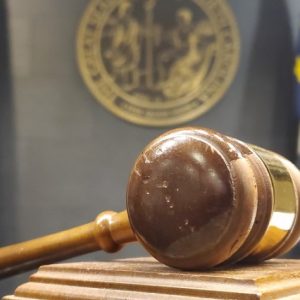DOJ Loses Wire Act Appeal

The New Hampshire Lottery Commission has won the appeals against the United States Department of Justice regarding the Federal Wire Act. News broke on Wednesday that the First Circuit Court of Appeals upheld a lower court ruling that the Wire Act only applies to sports betting.
With this now out of the way, we can now speculate about how this will impact the future of online poker and online gambling in the United States going forwards.
Lower Court Interpretation of the Wire Act Upheld
President Joe Biden had barely been sworn in on Wednesday when news broke regarding the ruling from the First Circuit Court of Appeals. The court effectively rules in favor of the New Hampshire Lottery Commission and found that the Federal Wire Act only applies to sports betting.
The following is the key takeaway from the ruling:
“Under the government’s reading, anyone can transmit over the wires information assisting someone in placing a bet or wager over the wires on a non-sporting event, but the person receiving the assistance commits a crime if he then places the bet or wager. In short, there is no congruity between the two prohibitions in Clause One under the government’s reading. Conversely, if we read “on any sporting event or contest” as qualifying both antecedents, harmony is restored: You cannot use the wires to place a bet or wager on a sporting event, and you cannot use the wires to send information assisting in placing that bet or wager.”
The First Circuit rejected an interpretation of the Wire Act that could have made state lotteries illegal and threatened the viability of online gambling.https://t.co/zKAcNwOQSm
— Fordham Sports Law Forum (@FSLForum) January 23, 2021
The IDEA Growth group released the following statement regarding the ruling:
“This landmark decision is a victory for states’ rights; for clear reading of federal statutes, and for the gaming industry and its customers. Uncertainty surrounding the ambit of the Wire Act has been a cloud over the internet gaming industry since 2018.
Today’s decision will hopefully put to rest the question of whether federal law prohibits states from licensing internet gaming within their borders and compacting with each other to allow such gaming on an interstate basis.
DOJ doesn’t often lose litigation over the meaning of federal statutes. However, the OLC’s 2018 opinion was so misguided that the court resoundingly rejected it.”
Judge’s Death Not an Issue in the End
There was some concern that the death of Judge Juan R. Torruella would impact the outcome of this case. Some felt that the case may have to be retried. However, in the end his death did not matter as the other two judges were in agreement regarding the ruling.
Judges William Kyatta and Sandra Lynch both ruled in favor of the NH Lottery Commission. Judge Torruella’s vote effectively becomes inconsequential as the ruling would have been 2-1 at worst. Majority rules, so the ruling could be made.
What’s Next for Online Gambling
With President Joe Biden now in office, it is likely that the DOJ will abandon its pursuit of the case. As such, we can now look ahead to what might happen in the near future. We can speculate with some certainty that we will see an uptick in the number of online gambling and online poker bills filed in 2021 and 2022.
U.S. Appeals Court rejects Trump-Era Wire Act Memo. @iDEA_Growth is credited with contributions leading to the win. – https://t.co/O7bDkouok1 pic.twitter.com/jYjDoSqrM3
— Ifrah Law (@ifrahlaw) January 22, 2021
Some states have been waiting for an outcome on this case, and now that it is likely that this matter is closed, lawmakers can move forward with plans for iGaming regulation. Some states like Pennsylvania can now explore interstate online poker compacts now that they don’t have to worry about DOJ prosecution.
Ultimately, we see this development only helping to slightly increase the speed that some states regulate online poker and online gambling. No, we will not see a nationwide online poker or online gambling bill. The matter will be left for the states to decide.
